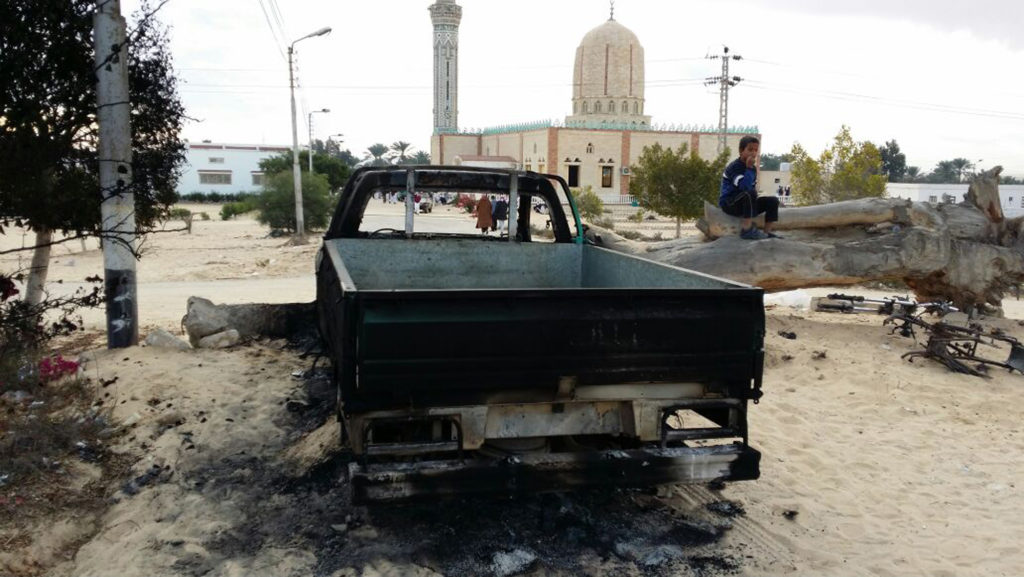After Egypt failed to stop jihadists in the Northern Sinai region responsible for killing hundreds of soldiers and police, Israel addressed the threat, according to a recent NY Times report.
By: World Israel News Staff
For over two years, unmarked Israeli drones, jets, and helicopters mounted a covert air campaign, completing over 100 airstrikes inside Egyptian territory in an operation approved by Egyptian President Abdel Fattah el-Sisi, reported the NY Times on Saturday.
The joint Israeli-Egyptian operation reveals a hidden dimension in a “fraught relationship.” Over the course of 70 years, the two nations have gone from fierce enemies in three wars to secret allies in a covert battle against jihadists.
While the Israeli assistance has given Cairo a leg up in its battle to tamp down the threat from Islamic terror groups, Israel has also fortified the security of its border and strengthened the stability of its neighbor to the south.
Spokesmen for the Israeli and Egyptian militaries refused to comment on the operation, but seven current or former British and American officials involved in Middle East policy confirmed the Israeli airstrikes in Egypt. According to these sources, Israel’s air campaign “has played a decisive role in enabling the Egyptian armed forces to gain an upper hand against the militants,” leading some to speculate that senior Israeli officials now perceive Egypt as dependent on the Jewish state to reign in jihadists in Egyptian territory.
Both nations have concealed Israel’s role for fear of a backlash within Egypt, where the government and official state media perpetuate a hostile attitude toward Israel claiming to back the Palestinians.
The North Sinai, where the secret Israeli strikes have been carried out, remains a largely lawless mountainous desert region that has devolved into a refuge for Islamic terrorists. Among the main jihadist groups there is Ansar Beit al
Maqdis, a faction whose name means “the Partisans of Jerusalem” but which more recently declared itself the Sinai branch of the Islamic State (ISIS).
Ansar Beit al Maqdis had traditionally focused on attacking Israel, but after Sisi took power several years ago, the terrorist group launched a series of deadly attacks on Egyptian forces.
In November 2017, Ansar Beit al Maqdis set its sights on Sufi worshipers at a mosque in Northern Sinai, slaughtering 311 of them.
Certain American elected officials have remarked that given Cairo’s reliance on the Israeli military, it is hypocritical for Egyptian officials and state-controlled news media to consistently publicly denounce Israel in forums such as the United Nations.
“You speak with Sisi and he talks about security cooperation with Israel, and
you speak with Israelis and they talk about security cooperation with Egypt, but then this duplicitous game continues,” Representative Eliot L. Engel of New York, the
ranking Democrat on the House Foreign Relations Committee, told the NY Times. “It is confusing to me.”


